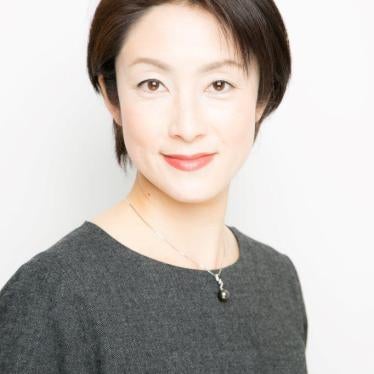The United Nations Educational, Scientific and Cultural Organization (UNESCO), well known for deciding world heritages, is in the middle of a controversy surrounding a "dictator" prize. In 2008, UNESCO created an award called the UNESCO-Obiang Nguema Mbasogo International Prize for Research in the Life Sciences.
This prize was created to recognize "scientific achievements that improve the quality of human life," which, UNESCO says, is in conformity with its major program. The award was named after the dictator of Equatorial Guinea and its three million dollars funds are also from him. However, this prize makes a mockery of UN human rights principles.
Some 270 organizations and individuals around the world have been involved in the protest against this prize, including the Most Rev. Desmond Tutu, the Noble Peace Laureate and archbishop emeritus of Cape Town.
The problem is that President Obiang has fundamentally failed to respect the rights of the citizens of his own country, much less improve their quality of life. Although the country became the fourth-largest oil producer in sub-Saharan Africa after the discovery of oil in the mid-1990s, with a per capita GDP that approaches Japan's, even Obiang's government admits that over 75 percent of its people live in poverty. The majority also lack access to clear water.
President Obiang is also notorious for corruption. According to evidence produced in 2004 and 2010 investigations by the US Senate Permanent Subcommittee on Investigations, Obiang and close family members have diverted tens of millions of dollars from their country's natural resource earnings to their private benefit, including President Obiang spending $3.8 million to buy two mansions in a suburb of Washington, DC. Criminal charges against President Obiang are now under judicial investigation in Spain.
Obiang's eldest son is also known for corruption. This son bought a $35 million property in California in 2006 while his only known income was a $4,000 monthly salary from the government. How can it happen?
For years, UN human rights monitors have criticized Obiang's government for repressing the political opposition, allowing arbitrary detention and rampant torture by the police, systematically violating the right to freedom of expression, and presiding over a systemic abrogation of economic and social rights.
UNESCO‘s charter says it should promote human rights, education and freedom of expression. It should not be honoring President Obiang.
The Japanese Foreign Ministry puts priority on the United Nations. Further, Japan is a major donor to UNESCO and has had strong and deep relations with it. However, at times, the most important role a friend can play is speaking up to prevent the UN from making a big mistake. Particularly when UNESCO is about to give out a prize in honor of an abusive, corrupt leader from West Africa whose record resembles that of Kim Jong-il. UNESCO Director General Bokova contends that only member states on UNESCO's executive board -- on which Japan holds a leadership post as a vice-chair -- have the power to cancel this prize.
Unfortunately, this nightmare began under Japanese leadership. Director-General Koichiro Matsuura headed UNESCO when this award was created in 2008. Accordingly, the Japanese government should consider it a particular responsibility to press UNESCO to re-think this award.
Japan should step in urgently to defend UN principles and to protect UNESCO's reputation. At the informational session held on June 15, UNESCO's executive board decided to delay awarding the Obiang prize, which was originally scheduled at the end of June. This is a positive initial step. Yet, the real test will be whether UNESCO ultimately cancels the prize. The next meeting of the executive board is scheduled for October. What Japan will do before and during the next meeting is on watch.
The current position of the Government of Japan is not to speak out openly against the prize. However, stronger leadership from UNESCO member states is needed in order to make sure the three million dollars will return to the people of Equatorial Guinea. Japan should publicly call for the cancellation of the prize in order to make sure that the funds are used to improve the welfare of the people of Equatorial Guinea. It's the least a true partner can do.
Kanae Doi is Tokyo Director at Human Rights Watch.






